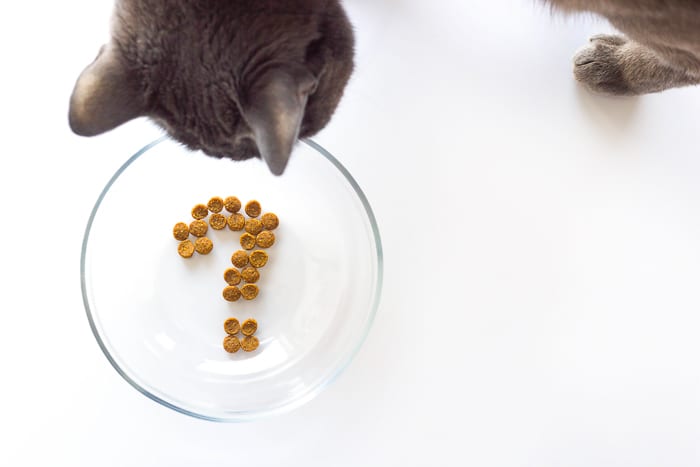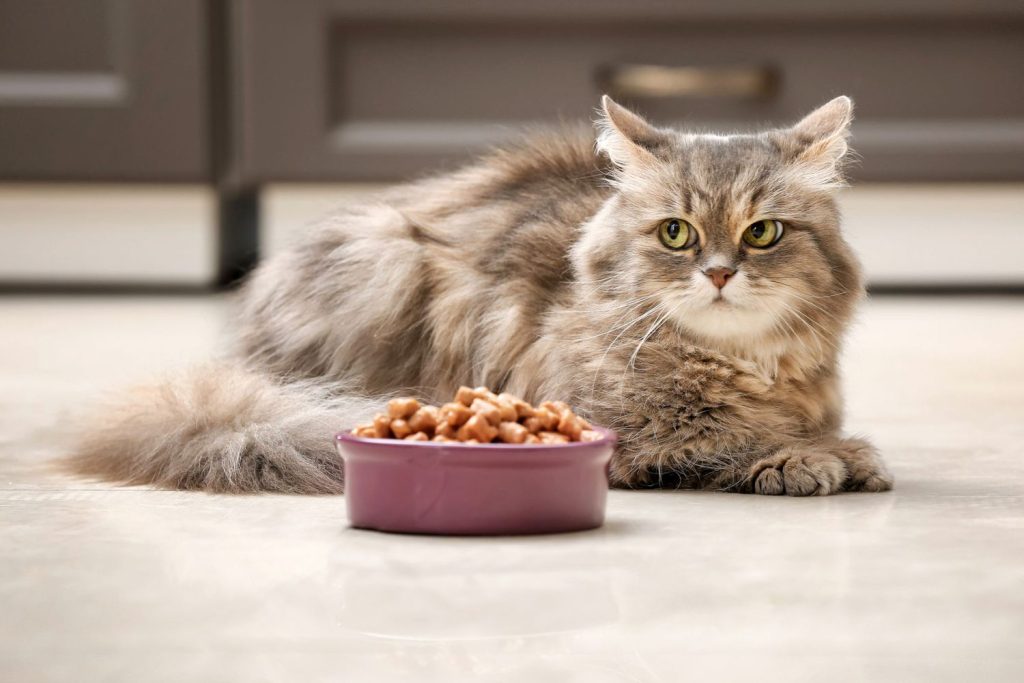Table of Contents
How long can cats go without food?
Cats can be picky about what they eat, where they eat, and how often they want to be served. Even with a selection of wet and dry food to cover basic nutritional needs, your fussy cat may turn up his nose at your carefully prepared meals. Whether you have a picky eater at home or your furry friend has suddenly found a different appetite, you may be wondering how long cats can go without food. If your cat doesn’t touch his meals for 24 hours, it’s an indication that you should check him for signs of illness or pain, or to find out if he just doesn’t like the meal being served. If your cat doesn’t eat for a day but drinks water, experts say there won’t be any long-term medical effects. Without food or water, cats can develop serious medical problems in just one day. If the hunger strike lasts longer than a day, schedule an appointment with your veterinarian immediately. If a cat does not eat for three days, it begins to lose excess fat, which leads to serious illness. These time windows do not correspond to those of wild cats, whose bodies have not adapted to regular, human-fed meals.
Why isn’t my cat eating?
The list of reasons why your cat has suddenly stopped eating or lost its appetite is long. Identifying any unusual behavior or other symptoms will help your veterinarian understand the reason for the change in eating habits.Food allergies
Food allergies aren’t easy to spot without the help of an experienced veterinarian, says Rebecca Greenstein, panelist at Rover Dog People and chief veterinarian at Klein burg Veterinary Hospital. ” If you notice unusual symptoms, such as loss of appetite, skin problems, or an upset stomach, and they occur within a few weeks of changing your diet or introducing a new treat, it could indicate an underlying food allergy,” she says .Respiratory problems
A stuffy nose is no fun, especially for cats who rely on their keen sense of smell to stimulate their appetite. Respiratory diseases can have a variety of different symptoms. This also includes loss of appetite.Picky eating behavior
“Cats can be very picky eaters,” says Victoria Carmella , DVM, Director of Veterinary Scientific Affairs at Blue Buffalo. Everything from the taste to the texture to the smell of food can cause your cat to spurn a meal. If a selection of your cat’s favorite treats doesn’t stimulate his usual appetite within 24 hours, it’s time to consult the vet’s office.Digestive problems
“If a cat has gastrointestinal symptoms such as nausea, vomiting, diarrhea or abdominal discomfort, it may be reluctant to eat or drink,” says Dr. Carmella. Unfortunately, a lack of food and water can worsen the condition.Sadness and depression:
Like us, our four-legged friends can have grief. Sadness and depression in cats can present with a variety of symptoms, says Mikel Delgado, a cat expert at Rover on The Dog People Panel. If your cat suddenly stops eating and refuses her favorite treats, she may be depressed.Travel
” You should always check with your veterinarian before a trip to make sure it’s safe to bring your cat with you ,” advises Dr. Delgado. Any change in routine can be stressful and lead to loss of appetite, illness, and other stress-related conditions. The movement of the car itself can cause motion sickness, resulting in momentary nausea and loss of appetite.Fear and discomfort
Anxiety can look different from cat to cat. Some cats may become more reserved or calm than usual or freeze in their posture. Others become louder, groom themselves frequently, or have a change in appetite and new eating habits.Foreign body
Excessive hairballs and other foreign objects such as strings can clog your cat’s digestive tract. “If you think your cat has swallowed a foreign object, lost its appetite, is vomiting, or appears to be in pain, contact your veterinarian immediately,” emphasizes Dr. Delgado.Dental diseases
If your cat has lost his appetite and this is accompanied by excessive drooling, a slightly sticking out tongue, difficulty eating, or smelly breath, he may need to see the cat dentist. Common dental problems in cats can include gingivitis, toothache, and brittle teeth.Medication or vaccinations
Despite their importance, vaccines and medications can have side effects – including loss of appetite. The side effects should be mild and short-term. However, if they persist for more than a day or two, you should contact your veterinarian.General health status
It’s not easy to understand why your cat suddenly stops eating. Sometimes only a veterinarian can get to the bottom of the cause. Laura Robinson, DVM, consultant veterinarian for Canidae Pet Food, says some possible medical problems that cause loss of appetite and weight loss include the following:- Kidney disease
- Hyperthyroidism
- Liver dysfunction
- diabetes
- pancreatitis
- Parasites
- Cancer

What happens if a cat stops eating?
If your cat hasn’t eaten in 24 hours, he’s probably not feeling like himself. Dr. Sara Ochoa , DVM, a veterinarian at Dog Lab, says 24 hours without food will not cause permanent damage to a healthy adult cat. However, pay attention to any typical behavior that could indicate a health cause. If your cat hasn’t eaten for more than 24 hours, it’s time to consult the vet. A cat’s nutritional needs vary greatly depending on life stage, activity level, reproductive status and previous medical conditions. Additionally, small kittens are most susceptible to severe reactions to changes in eating habits. If you notice changes in eating behavior, it’s best to contact your vet too soon rather than too late. “If your cat doesn’t eat for three days, her body uses the excess fat and breaks it down into energy that her body can use,” explains Dr. Ochoa. “This can cause fat to build up in your cat’s liver.” This accumulation of fat in the liver is called hepatic lipidosis – also known as fatty liver disease. It develops when cats stop eating or when a cat loses too much weight over a short period of time. Because overweight cats have more fat to break down, they are at higher risk of developing fatty liver disease. Fortunately, fatty liver disease is treatable and the effects can be reversed if action is taken quickly. How long can a cat go without food before the liver suffers damage? According to Dr. Ochoa’s effects on the liver can begin within 48 to 72 hours of eating. If you spot these signs, contact your veterinarian to protect your cat from permanent liver damage:- Yellowing of the skin and eyes
- Vomit
- Lethargic
- Diarrhea
- Loss of appetite
How can I get my cat to eat?
Is my cat starving even if she just doesn’t like her food? Yes, your cat can unintentionally starve itself if it doesn’t like its food. Not eating sets off a dangerous cycle that quickly causes a cat to become weak and unwell, which in turn worsens their lack of appetite. Within the first 24 hours you can encourage your cat to eat as follows:- Replace the food bowl: A food bowl that is dirty or irritates the whiskers too much can lead to a loss of appetite. Dr Robinson adds that a change as small as switching from metal to ceramic could be the solution to the problem.
- Rearrange the food bowl: According to Dr. Robinson, a food bowl that is in a busy area, near other cats, or next to the litter box or water can be the reason your cat stops eating.
- Change the food: Changing the type of food – such as wet food instead of dry food – could cause your cat to stop eating. Let your cat eat whatever food she likes until normal behavior returns. The transition of feed varieties should be slow and gradual.
- Make sure the food smells particularly delicious: “ Cats are particularly driven by their sense of smell. Not only can you add aromatic, fragrant ingredients to the food for picky foodies, but you can also heat it to make it smell better to them,” recommends Dr. Greenstein.
- Add a Topper: “Adding tasty toppers to foods like flavored probiotics, food toppers, plain turkey, chicken, or scrambled eggs” could encourage your cat to eat, says Dr. Robinson. Tuna shouldn’t be a staple in your cat’s diet, but it can be used in a pinch.